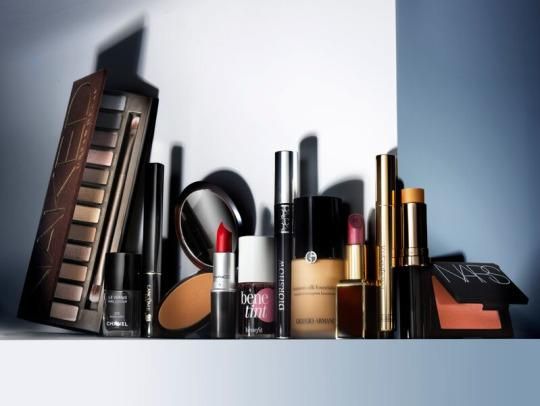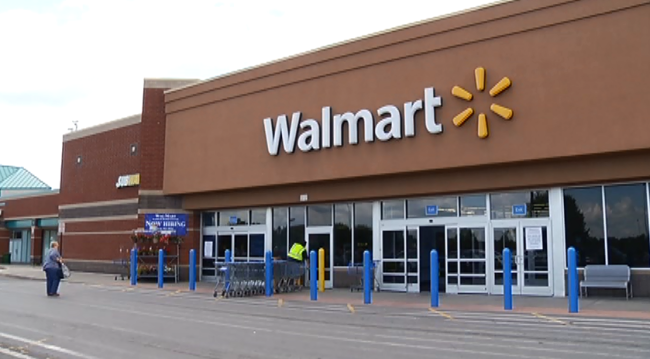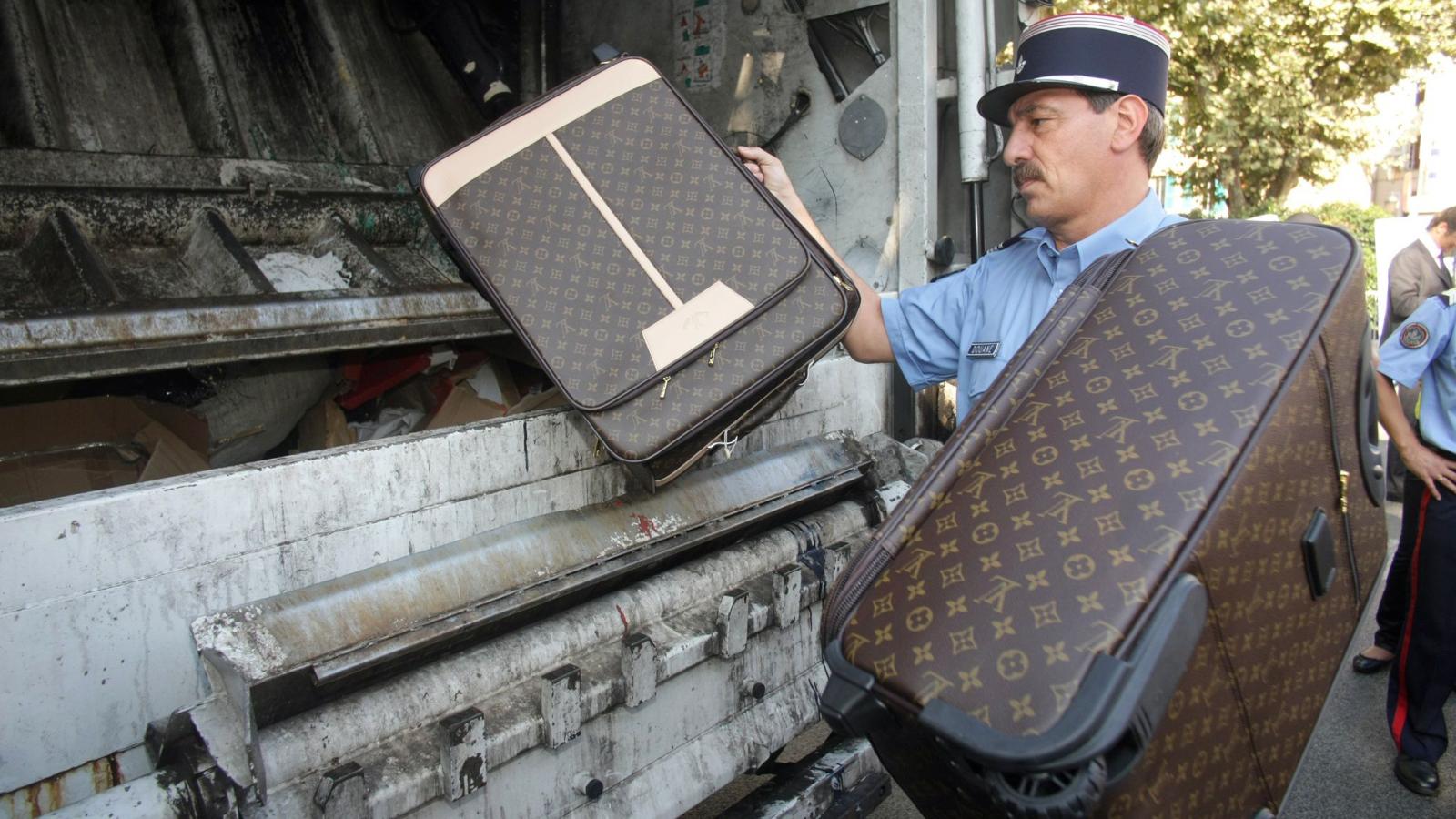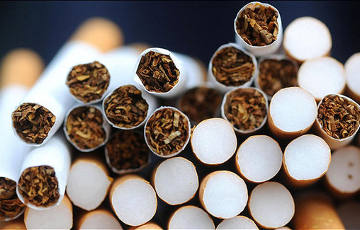Customs seizes fake Bioderma cleansing wate
Hong Kong customs agents have confiscated hundreds of bottles of fake Bioderma cleansing water and arrested 16 suspects. The stash of 1,100 bottles of the French beauty brand was worth HK$120,000 (US$15,400), Ming Pao Daily reports. The suspects are out on bail, pending further investigation. Officers found 12 cosmetics and retail shops selling the fake product in Tin Shui Wai, Sheung Shui, Causeway Bay, Wan Chai, Tsim Sha Tsui and Mong Kok, according Louise Ho, head of the intellectual property investigation unit of the Customs and Excise Department. The fakes came from mainland China and Europe, investigators said, but there were no traces of harmful chemicals in them. They were being sold for HK$228 per bottle, the same price as the genuine product, and there is almost no way to tell them apart, investigators said. Some online forums have been discussing how to distinguish between the two. An authentic Bioderma product contains “01″ in the center of a green triangle on the underside, along with the letters “PP”. Some fakes have no such markings. Customs officers warned customers to buy only from reputable shops and call the distributor of any suspected fake.
http://www.ejinsight.com/20150723-customs-seizes-fake-bioderma-cleansing-water/
Lear More
$1 Million for Counterfeit MAC Cosmetic Products Sold
Fake it ’till you make it — or maybe not, if you’re selling counterfeit cosmetics products. A 45-year-old woman from New Port Richey, Florida, has been sentenced to 18 months in federal prison and owes $961,744.75 to MAC Cosmetics. The woman, Tina Oleszczuk, bought the fake products from a source in China and then sold them as real MAC goods at higher prices through her home-based company, Cozmetic Delights LLC. MAC Cosmetics released in a statement, “We would like to explain that our products are distributed for sale only at our authorized retail store accounts (including certain direct TV sales), free-standing stores, and e-commerce sites. Products sold to our authorized accounts are genuine M.A.C. If a retailer is not one of our accounts, we have no control over the merchandise that they sell. Further, we have no way of knowing how they obtained our products.
https://www.yahoo.com/beauty/woman-owes-mac-cosmetics-almost-1-million-for-124775867558.html
Lear MoreCounterfeit luxury products and how to recognize the genuineness
Consumers are brand conscious but are faking it. According to Anil Rajput, chairman of FICCI Cascade, an industry body created to generate awareness regarding counterfeit, contraband and smuggled products, there are people who buy fake brands knowingly because they desire to own these products but can’t afford them.Then, there is another section that is hoodwinked by the traders.Research shows that 5 popular brands that are replicated the most are:Louis Vuitton,Burberry, Gucci, Chanel & Michael Kors.ASSOCHAM recently reported the size of the fake luxury products market in India at Rs 2,500-3,000 crore. That is 5-6 per cent of the overall luxury products market in the country, which is worth Rs 49,000 crore. Further, fake products account for 7 per cent of the global luxury products industry worth Rs 19,69,920 crore. The market for fake goods is driven largely by web shopping portals that account for over 25 per cent of the overall market for fake luxury products in India, says the report.
Lear MoreCBCA to curb smuggling
THE business community is pinning its hopes on the Consignment Based Conformity Assessment (CBCA) programme saying that it would curb smuggling and influx of cheap goods into the country and pave way for local products to be competitive. CBCA is a government initiative to curb the continuous influx of sub-standard products in the country which is expected to begin on Monday next week. Local industries have been negatively affected by the smuggling and importation of cheap products into the country and have called for protectionist policies, like an increase in duty or even a total ban of imports. In an interview with NewsDay, Zimbabwe National Chamber of Commerce president Davison Norupiri said the business community was in support of the CBCA initiative and hopefully would work well especially for the finished goods as this would be a way to safe guard the Zimbabwe industry. He said the industry was glad that government has exempted raw materials from the list of goods which are expected to be on the CBCA programme
https://www.newsday.co.zw/2015/07/21/industry-pins-hope-on-cbca-to-curb-smuggling/
Lear MoreAbout Rs 39,000-crore loss in one year due to illicit markets in manufacturing sectors: FICCI report
Illicit market in just seven select manufacturing sectors including FMCG, packaged foods, tobacco, alcohol and mobile phones had led to a loss to the nation to the tune of Rs 32,239 crore during 2014, a report released by FICCI said on Tuesday. The FICCI report prepared by its Committee Against Smuggling and Counterfeiting Activities Destroying the Economy and titled “Illicit Market: A Threat to Our National Interest” released here said the loss was inclusive of both direct and indirect taxes, with the indirect taxes component working out to a whopping Rs 34,020 crore. While counterfeiting and illicit trade in tobacco products accounted for the maximum revenue loss – nearly 23 per cent of the total loss which works out to about Rs 9139 crore, mobile phones accounted for 17 per cent (Rs 6705 crore), alcohol 16 per cent (Rs 6309 crore), and FMCG packaged food also about 16 per cent (Rs 6096 crore), the report said. The study also revealed that during the course of two years from 2011-12 to 2013-14, revenue loss to the government had grown exponentially by Rs. 13,049 crores, an increase by 49.8 per cent. Assam, the report said, has seen a significant growth in illicit trade among these sectors in the last couple of years with the state emerging as one of the fastest growing markets for illegal cigarettes and alcohol in the entire country.
Lear More
Transcarpathian smugglers to be sent to fight in Donbas
Three smugglers caught red-handed will be sent to the military enlistment office for mobilization, head of the Transcarpathian regional authorities Hennadiy Moskal said. “Since last week the Transcarpathian region has been actively searching for places used to hide illegal migrants and tobacco products intended for smuggling. For the past two days three local residents who tried to traffic six boxes of cigarettes across the border were detained on the green border. The cigarettes were seized and the detainees [men of recruitment age] were sent to the military enlistment office for mobilization in the Ukrainian armed forces,” the regional head’s website said in a statement. Monday, July 20, six boxes of cigarettes were found in a cargo wagon of the train which was delivering the ore abroad. The law enforcers are searching for masterminds of this smuggling scheme. It was also reported that a hang-glider was detected near the border, took off and headed for Slovakia when the border guards began approaching. The regional chief said that the number of smuggling attempts had dropped sharply in the Trans-Carpathian Region as compared with the previous reported period. Meanwhile, employees of military enlistment offices cannot find people put on the law enforcement database as smugglers [there are 2,500 of them in the region] to hand draft notices to them. The sixth wave of mobilization has been fulfilled only by 10% in the Transcarpathian region by now.
http://en.interfax.com.ua/news/general/279496.html
Lear More
Ho Chi Minh police seize five tons of counterfeit cosmetics
The National Steering Committee on Prevention and Control of Smuggling, Trade Fraud and Counterfeit Goods and Ho Chi Minh City’s economic police have seized a huge haul of counterfeit cosmetics in the city’s District 6. Some five tons of fake beauty products were discovered at a storage area of Huyen Trang Cosmetic Company, according to a report in Viet Nam News. The products were registered as imported from France, South Korea and Japan, but were found to have been produced in China and smuggled into the country. The haul was part of a wider operation to crack down on a large smuggling ring in the city thought to be trafficking fake goods masquerading as imported products from brands such as Sasaki, Hikato and Puroz, which command a high price on the Vietnamese market. The investigators reportedly found falsified ‘Made in Japan’ and ‘Made in Korea’ labels at the scene.
Lear More
Fakes are costing Europe’s fashion industry
It’s exceedingly easy to buy knock-offs of European luxury brands. They’re so common people hardly pay them any mind. But their prevalence is actually a major problem, and it’s undermining Europe’s fashion industry.Counterfeits cost European brands the value of 9.7% of their total sales every year, or a staggering €26.3 billion ($28.7 billion), according to a new report by Europe’s Office for Harmonization in the Internal Market (OHIM). Those lost sales ripple outward, resulting in approximately 363,000 lost jobs across the manufacturing, retail, and wholesale sectors of Europe’s fashion industries.
Lear MoreAlibaba’s anti-counterfeit codes
Consumer goods giant Unilever has joined forces with Alibaba in a programme that aims to prevent counterfeits on the online retailer’s sites. The Chinese arm of Unilever has signed a memorandum of understanding with Alibaba that -alongside initiatives to expand distribution of consumer goods – will also see Unilever brands carry a new QR code-based technology that the company recently adopted to help fight counterfeits. The QR codes “will help consumers easily identify counterfeit products with [a] mobile app and provide a special shopping experience for the consumer” and will be added to Unilever’s products initially on a trial basis. The codes are being supplied by Visualead, an Israeli start-up in which Alibaba bought a minority stake earlier this year, and according to earlier reports be supplied to companies who request them at no cost. Unilever has had a dedicated storefront on Alibaba’s Tmall since 2011 and has since also started making use of the online retailer’s Tmall Global platform for sales outside China – but the new agreement calls for much closer cooperation between the companies both on- and off-line. The deal will result in expanded distribution channels – giving customers in rural China better access to Unilever products for example – and also see the two companies working on a ‘big data’ approach to advertising and driving sales.
Lear More
Cigarettes Smuggled From Ukraine
“The results of the searches are being compiled together and will be announced later, but today, we can say that the main supplier of cigarettes, which are smuggled abroad, is Lviv Tobacco Factory,” he said. “Some of the seized cigarettes are Belarusian, and this means that there is a “window” for the smugglers in Chernihiv region on the border with Belarus,” Moskal said. He added that in order to boost up the fight against smuggling beyond checkpoints along Zakarpattia region, the checkpoints with customs officers, personnel of the State Border Guard Service, the Interior Ministry, the Security Service of Ukraine and the State Fiscal Service had been established on all four mountain passes, leading to the region. “These checkpoints will not allow imports of large wholesale lots of cigarettes (including those lacking excise stamps) and counterfeit spirits to Zakarpattia, and exports of round timber from Zakarpattia region,” Moskal said. As UNIAN reported earlier, the smuggling is considered to be the main reason for July 11 conflict in the town of Mukacheve between the Right Sector and the people close to Mykhailo Lanyo, Ukrainian MP, which resulted in a shootout. According to representatives of the Right Sector organization, Lanyo, himself, had called them to hold talks, because the Right Sector started interfering with the flows of contraband.
http://charter97.org/en/news/2015/7/22/160902/
Lear More


